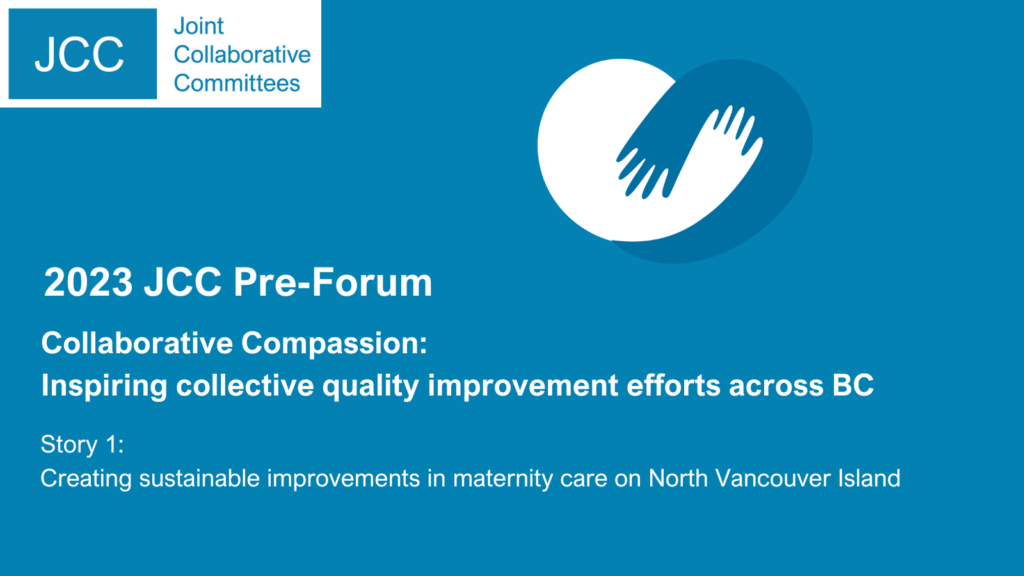
Pregnancy can be a challenging time in a person’s life no matter the circumstances, but patients in the remote communities of North Vancouver Island (including Alert Bay, Port Alice, Port Hardy, and Port McNeill) have historically faced major roadblocks when it comes to accessing local maternity care. For many birthing people, their pregnancies have involved traveling down island to receive care, which can be difficult to arrange, costly, and isolating. For the Indigenous communities in the area, it is important to provide access to culturally safe care, and the option to give birth on their own lands—which has not always been available.
With the support of the Shared Care Committee (SCC), the North Island Chapter of the Rural and Remote Division of Family Practice have collaborated with physicians, health care providers, the First Nations Health Authority (FNHA), and other stakeholders to find sustainable ways to offer safe, local maternity care tailored to the needs of these communities. The work builds on several maternity care projects carried out in the area.
An important part of the project centred around establishing an Interprofessional Collaborative (IPC) approach to maternity care in the community. Carrera Teal, the Chapter Coordinator for North Vancouver Island summed up the aim: “It is about bringing maternity care back to the North Island, specifically around integrating midwifery care.” The interprofessional team brought together for the project includes two midwives and a doula hired through the FNHA, nursing staff, family physicians, and a specialist physician.
To create a culture of collaboration and trust among the team, the project brought in a facilitator last June to examine patient journey mapping, enhance communication among staff, and boost collective problem-solving skills. This exercise helped each professional understand the scope of the varied roles on the team, as well as how they will work together in a sustainable way.
The team has a strong focus on patient safety, and developing a path for people to give birth closer to home—both connected to the crucial element of culturally safe, trauma-informed maternity care that respects local traditions and practices— “It’s about supporting Nations who want to give birth on their own lands, and it’s a continuous journey.” Speaking to the First Nations communities in the area is a “big priority” for everyone involved. From building community trust to educating health care teams, this is no small task.
While the undertaking has been “extremely challenging”, Teal said, the team’s collective passion for bringing healthcare closer to home has been the keystone all along. “Everyone wants to be at the table–while there are capacity challenges, they want to support one another.”

